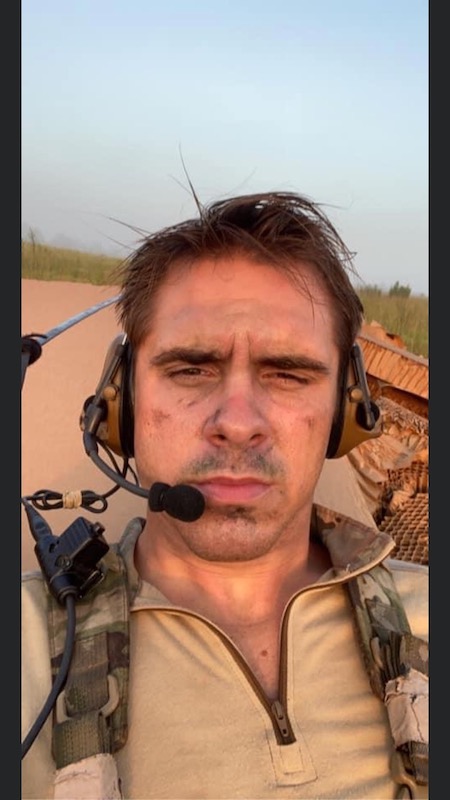Stop Soldier Suicide Addresses a National Crisis

Thank you for your service. We say it when we see soldiers in uniform or a veteran wearing a military hat, to express our appreciation for the time they spent defending our nation. We say it in recognition of the sacrifices that soldiers make on our behalf; family separations, lack of financial gain; risk of injury or death. But sometimes, a soldier’s service comes at a price far greater than we can fathom. More than 500,000 veterans have been diagnosed with Post Traumatic Stress Disorder (PTSD) in the United States and soldier death by suicide has become a national epidemic. As a society, we are failing to take care of the men and women who defend our freedoms. Stop Soldier Suicide is an organization that aims to change that.
Numbers Don’t Lie – Suicide is an Epidemic in Our Military
Stop Soldier Suicide (SSS) is a non-profit organization that aims to reduce the military suicide rate by helping those in immediate crisis, and by conducting research to identify, understand, and address the underlying issues of PTSD suicide. SSS serves active service members and veterans in all branches of the US military. Veterans Brian Kinsella, Nick Black and Craig Gridelli founded SSS in 2010 amid the worst suicide crisis our military has ever experienced. Sadly, the crisis is far from over. The suicide risk for active service members and veterans in the US is currently 57 percent higher than the national average.
If there is any doubt that military death by suicide is at epidemic levels, consider the following numbers.
The VA’s National Veteran Suicide Prevention Annual Report for 2023 reported there were 6,392 veteran suicides in 2021. The Department of Defense’s 2023 Annual Report on Suicide in the Military stated there were 524 suicide deaths among active military personnel in 2021. Combining the two numbers indicates an average of 19 military suicides per day, with the highest number of deaths in the 18-34 age group.
As a point of reference, the total of 6,916 military deaths by suicide in 2021, just one year, compares to a total of 2,462 service members killed during the entire War in Afghanistan, which spanned from October of 2001 to August of 2021.
Many questions surround these alarming statistics. Some speculate that multiple deployments in Afghanistan, due in part to the length of the war and the absence of a U.S. draft, have resulted in soldiers who endure a prolonged atmosphere of “fight or flight,” which takes a heavy toll on the psyche. Soldiers receive little reintegration counseling upon their return. The military training that demands physical and mental toughness from soldiers, creates a mindset that prevents them from admitting to psychological struggles or seeking help. To make matters worse, the modern culture in the United States can be socially isolating, making it hard for young veterans to find a strong network of support.
The US Department of Defense (DoD) has recently taken measures to analyze and address the suicide crisis, siting financial strain, alcohol and drug abuse, difficulties transitioning from military to civilian life, physical injuries, anxiety and depression among the factors contributing to soldier suicide. The DoD acknowledges, however, that PTSD, an invisible but very serious war injury, is by far the leading cause of suicide among active military and veterans, particularly over the last twenty years.
Beloved Local Soldier Made Great Impact in Life and in Death
Captain Austin Murga of the United States Army’s 82nd Airborne Division always wanted to be a soldier.
“From the time he was a little boy, he always wanted to chase the bad guys” his mom Gay recalls.
Austin, an only child adored by his parents, was a fun-loving, energetic boy who loved the outdoors.
“He didn’t really play with video games or electronics,” said his dad Kevin. “But he loved G.I. Joes.”
Austin was a natural leader from a young age. He was an Eagle Scout, he served as captain of his high school championship wrestling team, and he was known to always stick up for other kids. He had an adventurous spirit and an infectious laugh that earned him the “Best Laugh” superlative for his senior class in 2012.
Austin graduated from the prestigious Virginia Military Academy in 2016 and earned his Ranger Tab at Fort Benning shortly thereafter. Assigned to the the 82nd Airborne Division, Capt. Murga was regarded as an outstanding officer, beloved by his “Joes” for his approachability and compassion, and for his “death squeeze hugs.”
In 2019 Austin Murga was deployed to Afghanistan, where he served proudly for nine months.
Austin’s parents, Gay and Kevin Murga, were thrilled when he returned safely to Fort Bragg. Austin, however, found his new assignment increasingly difficult and admitted to feeling that he lacked a sense of purpose. The Murgas knew their son was struggling to find his footing but had no idea that he was so deeply damaged by PTSD. They said he was happy and funny when he came home to visit, even talking with his parents about plans for the future. There were no obvious, outward signs of his inner turmoil. The consummate soldier hid his pain to protect those he served and those he loved.
On September 7, 2020, just six months after his return from Afghanistan, Captain Austin Murga succumbed to PTSD and died by suicide.
Austin’s parents thought the danger to their son’s life was over when he came back from the war zone.
“You expect it to happen over there,” his father said. “You don’t expect it to happen here.”
Making an Impact
In the days and months following Austin’s death, The Murgas searched for answers. They also searched for ways to battle the suicide crisis afflicting our military community. Their exhaustive research taught them several things.
“Having military PTSD is not a weakness,” Gay Murga states emphatically. “It’s an injury caused by physical damage to the neurons in a person’s brain.” There is an abundance of data to back that up.
The Murgas also learned that the VA has historically been overwhelmed and ill-equipped to handle the epidemic levels of military deaths by suicide. And they learned that Stop Soldier Suicide is an excellent organization to fill the gap.
SSS’s mission is “to reduce service member and veteran suicide by using enhanced data insights, focused client acquisition, and suicide specific intervention services.” SSS provides 24/7 mental health care through telehealth services. Soldiers receive a one-on-one wellness coordinator who develops a personalized treatment plan that includes suicide-specific care for their physical and mental health, resources and referrals, information on alternative therapies, education and training. SSS provides consistent care that is deemed “disruptive and pro-active.”
Key components to the success of SSS are the fact that it’s completely confidential and completely free. SSS is fully funded by donations and therefore able to provide its services at no cost to the soldier. Veterans never need to worry about the financial strain of mental health treatment. And because SSS is an independent organization, with no reporting to the Dept of Defense or the VA, active-duty soldiers can contact them without fear of damage to their military career. Veterans can engage with SSS and not worry about the stigma that still hovers around mental health issues within the military community.
Gay and Kevin Murga have become ardent supporters and advocates of SSS, but not before conducting some very thorough research on the organization.
“Here’s why we love SSS” Gay Murga said. “They respond immediately.”
Gay knows firsthand. She called the SSS hotline to test the responsiveness and was thrilled with the results. She went on to praise the organization’s free and confidential counseling, and its 24/7 availability. She also noted that SSS provides client-specific and ongoing services, staying with a soldier for an average of 1.5 years.
US Military Gains Ground
By all accounts, the US military and the VA have struggled when it comes to identifying and prioritizing veterans at risk for suicide. Problems such as a lack of manpower, ineffective services, excessive red tape, and inaccurate data limit the responsiveness. As part of the Biden administration’s national strategy to address the suicide crisis, the VA made a remarkable announcement in January of 2022: a veteran in suicidal crisis could seek immediate care at any VA or non-VA hospital in the United States, including inpatient and outpatient services, completely free of charge. In January of 2023, CBS news reported that nearly 50,000 distressed veterans responded during the first year of this new policy.
The VA also initiated a 24/7 emergency hotline in 2022 called the “Veterans Crisis Line.” Veterans in despair are urged to call or text “988” then hit “1” to reach a crisis counselor. While these new measures represent great progress, there is still an urgent need for more, which is when organizations like SSS come into play.
In 2022, Stop Soldier Suicide served 1,400 veterans and active service members, providing 17,500 hours of care. Impressed with its success, Gay and Kevin Murga made a decision to help SSS with its research.
SSS Wins VA Award for Its Black Box Project
In 2022, Stop Soldier Suicide was the winner of the US Dept of Veteran Affairs “Mission Daybreak” grand challenge, designed to accelerate innovative solutions for addressing the critical issue of Veteran suicides. SSS was awarded $3,250,000 for their groundbreaking “Black Box Project,” which aims to redefine how we understand and respond to suicide risk through research and analysis.
Families of soldiers who died by suicide agree to loan their loved one’s digital devices to SSS, allowing a team of forensic experts to scan for warning signs of depression and distress. Utilizing artificial intelligence, SSS can study patterns in soldiers’ behaviors during the months, weeks, and days leading up to an attempted suicide. Algorithms are developed based on social media usage, online research, and phone activity, which can help researchers spot warning signs of suicide risks. Gay and Kevin Murga graciously loaned Austin’s devices to SSS as part of the initial Black Box Project study.
“We thought really hard about it.” Kevin Murga said. “It’s like handing over your child’s personal journal. We had to trust that it wouldn’t be misused. In the end, we felt we had to take the chance, knowing we could help save lives.”
Captain Austin Murga Memorial Golf Tournament
Searching for other ways to channel their grief into positive action and honor their son’s life, the Murgas, along with the help of good friend Steve Rice, organized a charity golf tournament at the St. James Players Club in 2021. That first year, 90 people registered to play in the “Captain Austin Murga Memorial Golf Tournament and Silent Auction” and raised $27,000 for Stop Soldier Suicide. In 2022, 120 golfers participated and raised $57,000. In 2023, registration soared to 180 golfers and raised a whopping $105,000, making the tournament SSS’s largest donor in NC!
“The residents of St. James and the small businesses of Southport and our surrounding communities have been truly amazing in their support!” said Gay Murga. “We were able to do all this without any corporate sponsors.”
Given the tremendous growth of the tournament, organizers are seeking corporate sponsorships for this year’s tournament to be held on September 7, 2024.
A Call to Arms in the Fight to Stop Soldier Death by Suicide
By all accounts, Capt. Murga was an outstanding soldier and a strong leader in the 82nd Airborne Division. He was a well-loved young man from a happy, stable family. Athletic, handsome, funny and outgoing, he certainly didn’t fit the stereotype of a suicide risk. But Austin suffered from PTSD as a result of his time in Afghanistan, a terrible injury he kept well-hidden. Tragically, his battle with PTSD was a war he could not win on his own.
Austin’s death by suicide represents a crisis in our military, a crisis in our nation. As citizens, we bear a responsibility to serve our soldiers better upon their return from deployment. As a nation, it’s our duty to care for the physical and mental well-being of our veterans. Stop Soldier Suicide can help, but they need our support to continue their work.
Thank you for your service.

*******************
For more information or to donate to SSS, go to www.StopSoldierSuicide.org or send a check by mail to:
Stop Soldier Suicide
P. O. Box 110605
Durham, NC 27709
For information on sponsoring or participating in the Captain Austin Murga Memorial Tournament to Benefit SSS, contact Steve Rice at: steverice11618@yahoo.com or call (919) 485-9254.
If you are a soldier or veteran in crisis, call Stop Soldier Suicide at 844-394-9472 for confidential, free help.
Dial/text “988” then hit “1” to reach the US Army’s Veteran Crisis Hotline.












Leave a Reply